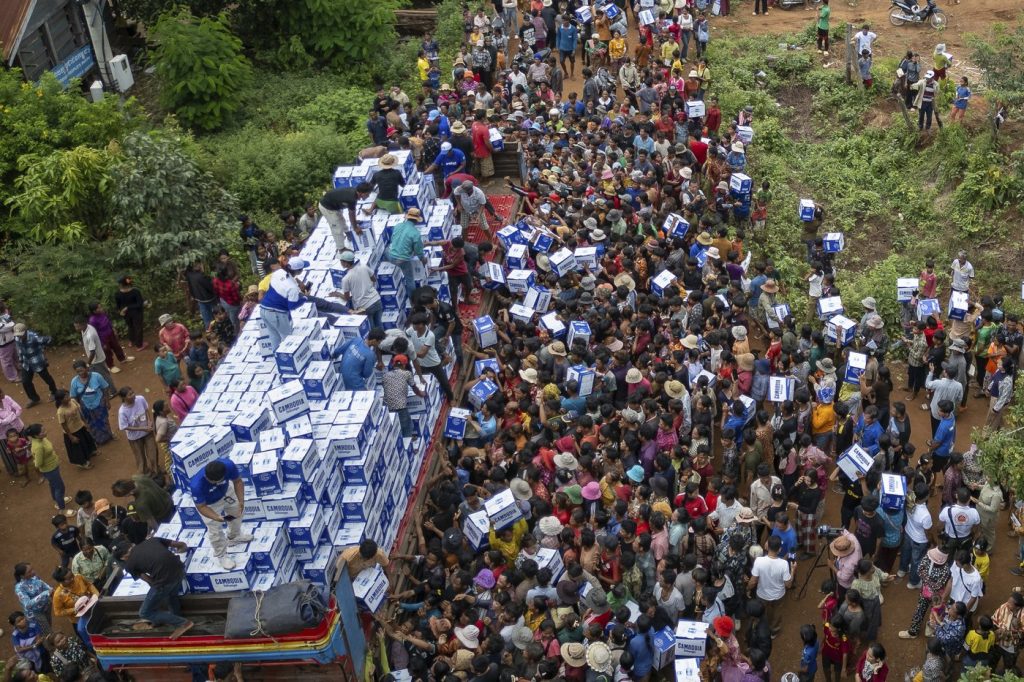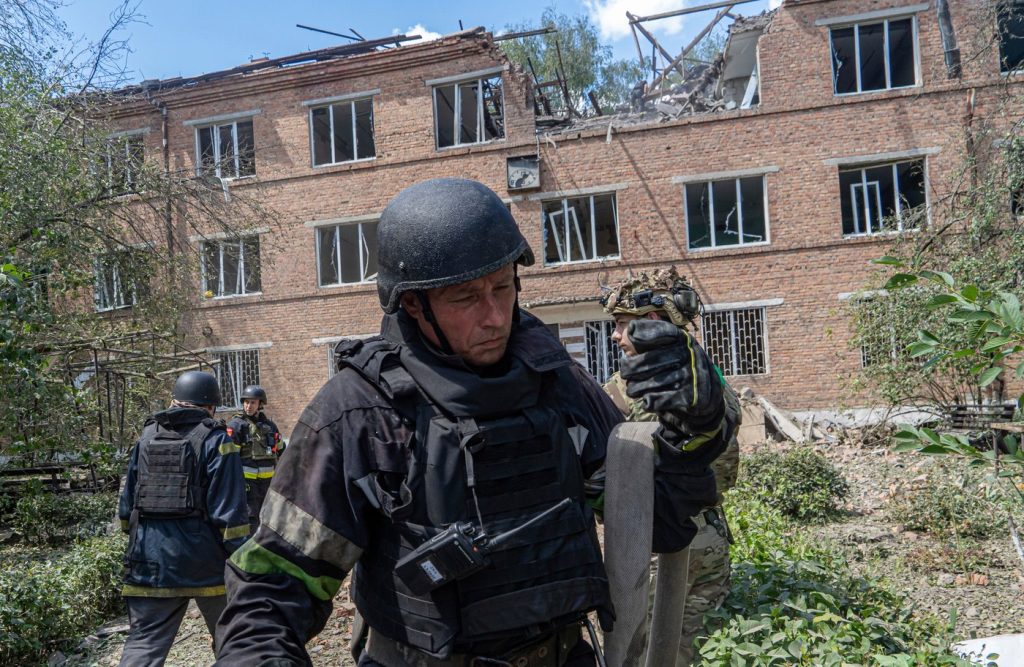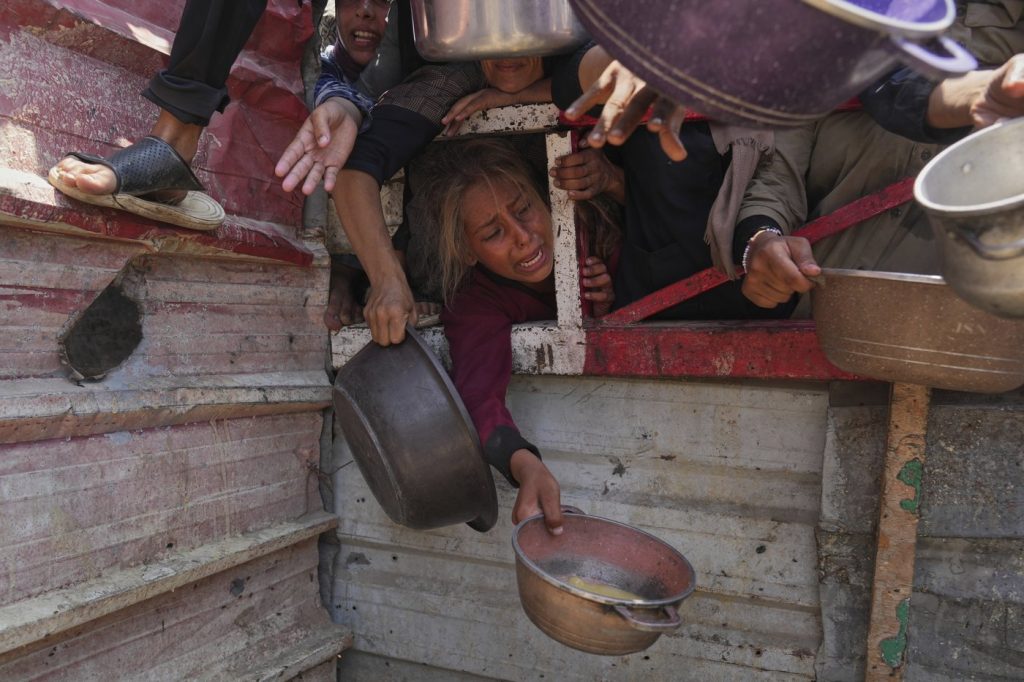SURIN, Thailand (AP) — Thailand and Cambodia exchanged accusations of renewed military aggression on Saturday as deadly border clashes entered their third consecutive day. The violent confrontations, which erupted on Thursday following a land mine explosion that injured five Thai soldiers, have resulted in at least 33 fatalities and forced over 168,000 individuals to evacuate their homes.
Heavy artillery and small arms fire were reported in various border villages, expanding the conflict area significantly. Both nations have recalled their ambassadors and Thailand has implemented a closure of its border crossings with Cambodia. Reports from Cambodian officials indicated 12 new casualties on Saturday, raising the total death toll in Cambodia to 13, while the Thai military reported an additional soldier killed, increasing Thailand's count to 20, predominantly civilians.
The ongoing conflict has displaced 10,865 Cambodian families, approximately 37,635 people, predominantly in three border provinces, while Thai officials confirmed that more than 131,000 people have fled their homes in border regions. The 800-kilometer (500-mile) border has been a point of contention for decades, though previous altercations have typically been brief and limited. Recent tensions have their roots in a May incident where a Cambodian soldier was killed, straining diplomatic relations between the two neighboring countries.
In a bid to mediate the escalating conflict, President Donald Trump took to Truth Social on Saturday to inform followers that he had contacted the leaders of both Thailand and Cambodia, indicating that he would reconsider trade agreements if hostilities continued. Trump announced that both nations had agreed to meet to discuss a ceasefire. Thailand's Foreign Ministry responded cautiously to the proposal, with Acting Prime Minister Phumtham Wechayachai expressing gratitude for Trump’s concern while stating that Thailand seeks sincere intentions from Cambodia before proceeding. Additionally, Phumtham requested that Trump communicate this position to Cambodian officials.
Meanwhile, Cambodian Prime Minister Hun Manet reportedly welcomed the idea of an immediate and unconditional ceasefire, as shared through an online news agency close to the Cambodian government, though his understanding of Thailand's commitment appears to be flawed, suggesting that Bangkok had already consented to a ceasefire.
International calls for peace grew louder following an emergency meeting of the U.N. Security Council, during which members urged a de-escalation of tensions and encouraged the Association of Southeast Asian Nations (ASEAN) to mediate a peaceful resolution. Malaysia, the current chair of ASEAN, indicated that both countries were amenable to a ceasefire proposal, with Prime Minister Anwar Ibrahim designating the foreign minister to lead peace negotiations, although no concrete plans have emerged.
Cambodia's Defense Ministry condemned what it characterized as an extensive Thai offensive early Saturday, alleging unprovoked violent actions from the Thai military. It reported casualties among civilians and soldiers, while the Thai military responded by denying targeted attacks on civilians and accusing Cambodian forces of utilizing "human shields" by placing weapons near residential areas.
Moreover, human rights groups have called on the international community to urge both nations to uphold international humanitarian law and prioritize the protection of civilians amid the ongoing conflict. Concern escalated over reported uses of cluster munitions, which are internationally banned, as Thai military spokespersons acknowledged that such weapons might be deployed when deemed necessary. This has raised alarms regarding the disregard for civilian safety in this escalating conflict.
Overall, the situation at the border between Thailand and Cambodia remains precarious, with both countries entrenched in a cycle of blame while international voices are calling for immediate peace measures to protect civilians amid the chaos.












